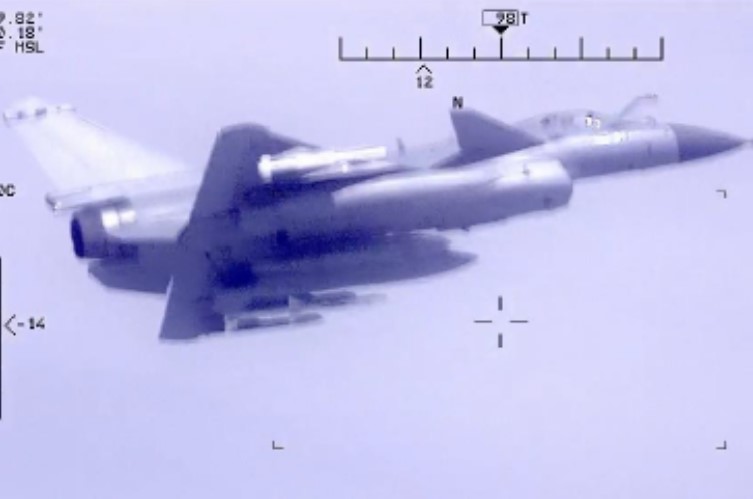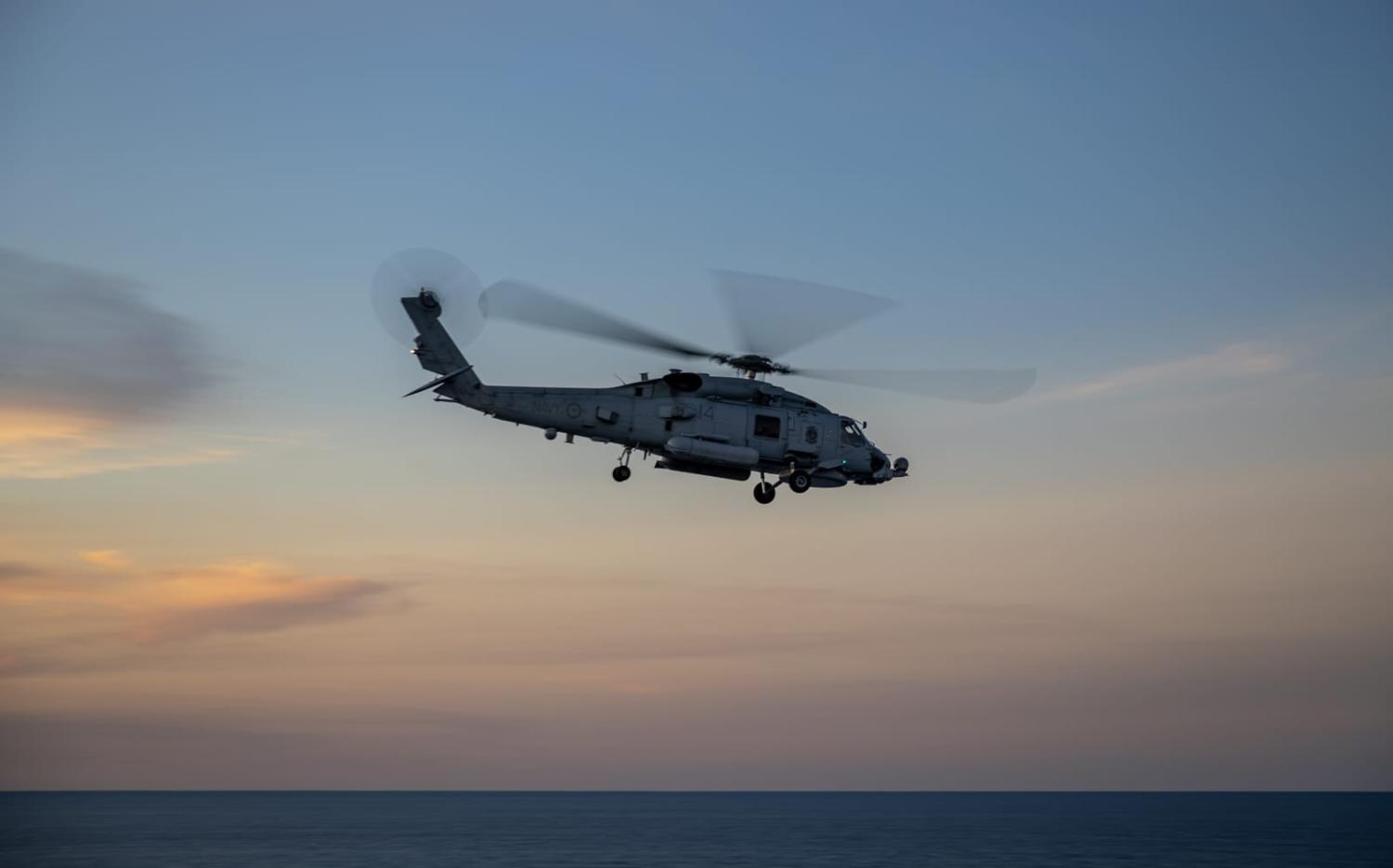The Chinese air force’s dangerous intercept of a Royal Australian Navy helicopter in the Yellow Sea – what the Defence Department statement calls an “unprofessional interaction”, which involved firing flares near the chopper – is the latest in a series of actions by China’s military. It includes the lasing of a RAN ship, the firing of chaff that was ingested into the engine of a RAAF aircraft, and the pulsing of a sonar near an Australian ship when its divers were in the water. The US and Canadian militaries have suffered similar incidents.
In other words, this looks like a clear pattern of behaviour endorsed at high levels of the Chinese military, not the work of over-zealous pilots or low-level commanders.
My response to last year’s sonar incident remains my view today. Australia should protest this behaviour vigorously to the Chinese government and consider non-military ways to respond. Some have suggested expelling Chinese diplomats, though that’s a high-profile move that would doubtless lead to a tit-for-tat response and derail the repair of the economic relationship. So, as I said at the time of the sonar incident, these episodes serve a clarifying function: they force Australia to ask what it really cares about in regard to the China relationship.
One thing Australia cannot do is think in terms of direct military responses. When the Australian military is operating in the South China Sea or Yellow Sea, it is far from home and therefore isolated. China, on the other hand, has bases, ships, and aircraft nearby, and can call on any number of resources in the event that such an incident escalates. The balance of forces, in other words, is extremely unfavourable to Australia.
This raises a broader point about China’s military capabilities, which have been exaggerated in some quarters, lending a tone of panic to the Australian defence debate. A new report by the American think tank Defense Priorities makes a clear and persuasive case that China’s naval power is overwhelmingly a threat to other countries when they are operating near China. China’s ability to operate far from home, including far-off Australia, is much more limited.

The report notes a number of deficiencies. China has made giant strides in naval modernisation in the last 30 years but is still a long way behind in nuclear-powered submarine technology, which is key to “blue water” naval operations. And if you want to operate warships at long range, they need refuelling, restocking and rearming at sea, yet China has under-invested in replenishment vessels, too. The key judgments are clear and stark:
China would need to significantly expand the number and calibre of its overseas bases in order to support large-scale, blue-water operations by the People’s Liberation Army Navy (PLAN) … Absent such a basing network, the PLAN is reliant on at-sea replenishment, a capability that is inherently vulnerable in wartime. China possesses some quality at-sea replenishment vessels but not nearly in sufficient quantities to support widespread global operations.
Even a vast flotilla of replenishment ships cannot substitute for naval bases and friendly ports where ships can repair and rearm, and crews can rest. The report says China only has two naval bases away from home – one in Djibouti and the second in Cambodia, though they are both small and it remains unclear whether China plans to permanently base forces at either.
Nevertheless, we should assume that two overseas naval bases do not mark the limit of Chinese ambition. If Australia wants to make sure that China can never project significant military power into our near region, the task must be to permanently frustrate those ambitions.
So, if Australia really does want to take vigorous action against Chinese incitement such as the incident with the naval helicopter, then perhaps this is the area to focus on. With every Chinese provocation, Australia could announce a new initiative with a Pacific Islands or Southeast Asian neighbour, the overall objective of which will always be the same: to strengthen diplomatic and defence cooperation in ways that erode the likelihood that these countries would ever consider hosting Chinese military facilities.

